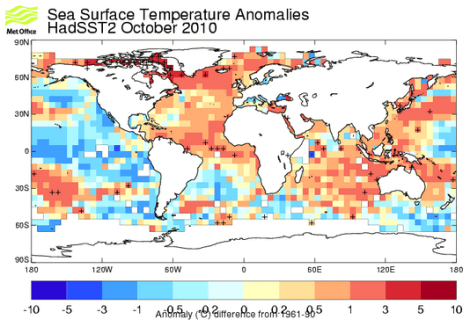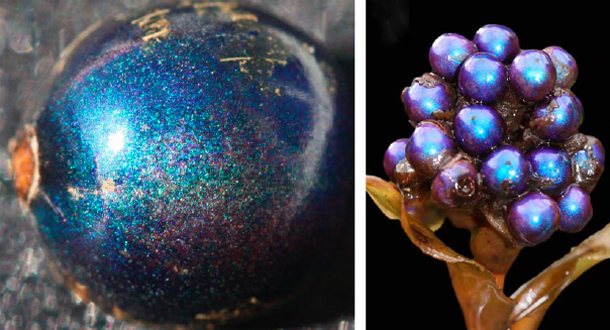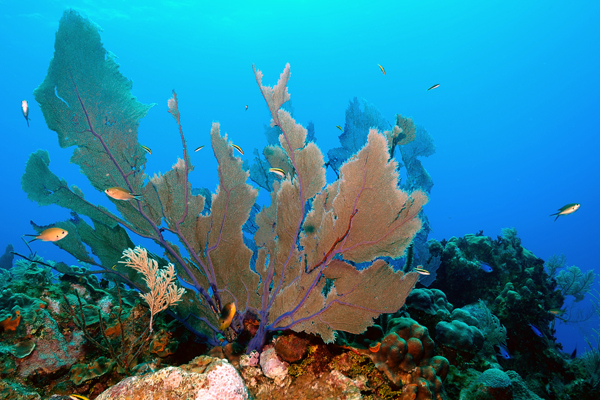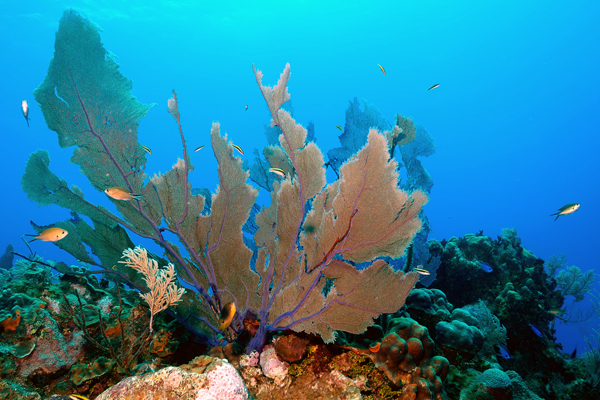
Photo by Shutterstock.
Coral reefs in the Caribbean are on the brink of complete collapse. From the Guardian:
The decline of the reefs has been rapid: in the 1970s, more than 50% showed live coral cover, compared with 8% in [a] newly completed survey [by the International Union for Conservation of Nature]. The scientists who carried it out warned there was no sign of the rate of coral death slowing. …
Warnings over the poor state of the world’s coral reefs have become more frequent in the past decades as pollution, increasing pressure on fish stocks, and the effects of global warming on the marine environment — in the form of higher sea temperatures and slightly elevated levels of acidity in the ocean — have taken their toll.
Last year, scientists estimated that 75% of the Caribbean’s coral reefs were in danger, along with 95% of those in south-east Asia. That research, from the World Resources Institute, predicted that by 2050 virtually all of the world’s coral reefs would be in danger.
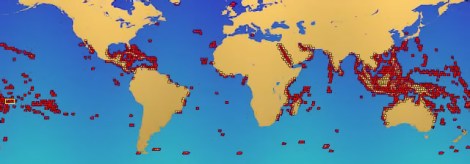
Coral reefs around the world.
Scientists blame the collapse on, among other things, pollution from agricultural runoff and climate change — reinforcing a warning last month that warming water temperatures could significantly deplete coral. This graph from the WWF demonstrates just how warm the ocean surface temperatures were in 2010 — and global warming is just kicking in.
